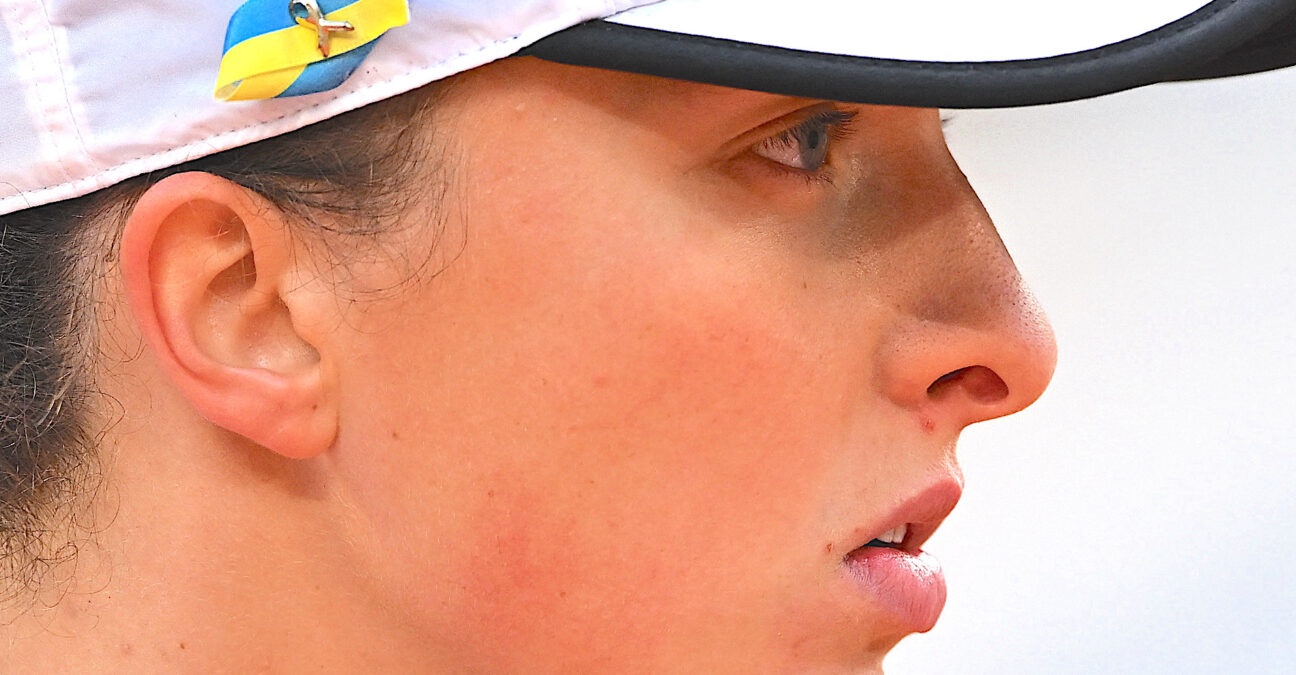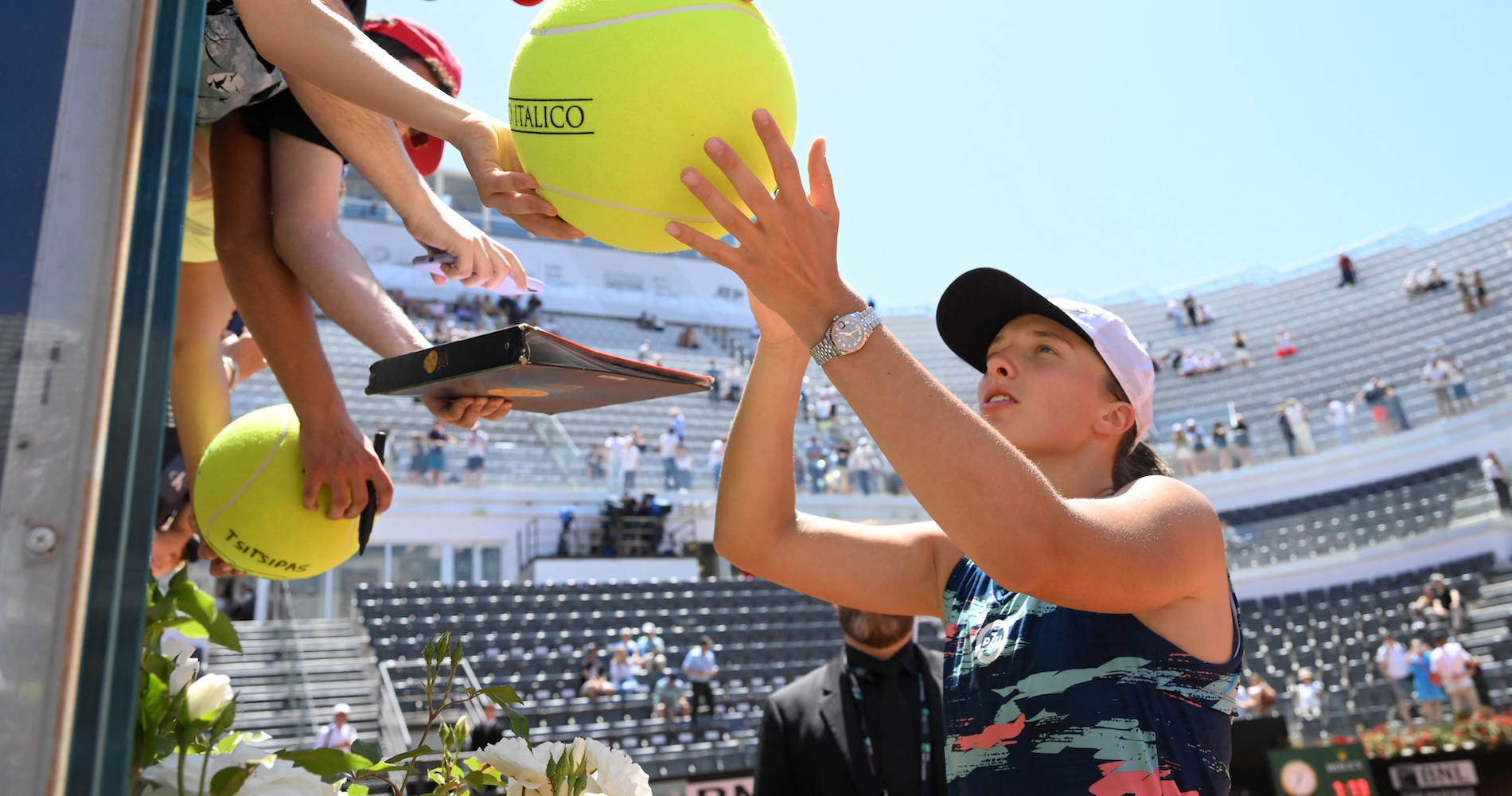How all-conquering Iga Swiatek is prepared for failure, and success
Swiatek’s sports psychologist, Daria Abramowicz, tells Tennis Majors why the world No 1 is ready to deal with whatever comes her way
 Iga Swiatek wearing a pin with the Ukrainian colors (© AI / Reuters / Panoramic)
Iga Swiatek wearing a pin with the Ukrainian colors (© AI / Reuters / Panoramic)
When Iga Swiatek played her first match at this year’s Roland-Garros, the cameras panned to a fan holding up a sign saying: “She may never lose again”.
Arriving in Paris, the Pole had won 28 matches, a run of form that gave her five titles as she established herself as the undisputed world No 1 in the wake of Ash Barty‘s retirement.
“I’m pretty sure that I am going to lose at some point,” Swiatek said, with a smile, when asked about it in press. “I also want to be ready for that and be aware that there are many players out there who can play great tennis and who are really dangerous.
“So that kind of mindset, it’s not possible for me, honestly, because I still remember how it was basically losing on most of tournaments and being disappointed, because you know you can play better.”
Abramowicz, her sports psychologist: “there will be more challenging times”
The way she has been playing at Roland-Garros, where on Saturday she won a straight-sets final for the second time in three years, this time against American Coco Gauff, losing might be a while off yet but it will happen at some stage.
When it does, she will be ready for it, thanks in part to the work she does with her sports psychologist, Daria Abramowicz, who joined Swiatek’s team in February 2019, the year before Swiatek won the French Open for the first time.
I’m really interested in how we will turn when she eventually will lose.
Daria Abramowicz
“On one hand I will use the word interesting and fascinating, and on the other hand, it’s a great challenge when an athlete achieves a success and somehow becomes property of a society in some way, as a lot of expectations are kicking in immediately,” Abramowicz told TennisMajors.
“And that actually happened after Iga’s 2020 Roland-Garros and then there really was this challenging last season. I’m really interested in how we will turn when she eventually will lose. Because she will. And I think eventually there will be a little bit more challenging time in her career.”

“It’s good to be prepared for when you achieve your goals”
Interestingly, they also have been working to understand and deal with extended success. “We started to do that since basically since the beginning,” Abramowicz said. “Because one of the parts of my philosophy is that when you set particular goals, it will be good to be prepared for what to do when you achieve these goals, because that’s where your intention is, right, to achieve those goals.
“I was trying always, since we first started, to encourage her to build these resources that will help her when the time comes. Not if, but when. And I think it pays off really right now. I think there is a lot of puzzles that are in the proper place right now. And the one of the most fascinating things, on the other hand, is how much we can improve on many, many levels still.“

In an interview with Reuters in April, Abramowicz said dealing with success was something not many people think about.
“This is something that actually is interesting across society – people are not fully equipped to manage success sometimes,” she said.
“It actually brings more stress sometimes, maybe even a little anxiety in some cases, feeling insecure when they achieve the goals because they don’t know what’s next.”





People in this post
More tennis news
“Shame” – Zverev regrets losing Rio quarter-final to Comesana from a “winning position”

Alexandre Muller defeats Cerundolo, reaches first ATP 500 semi-final

February 22, 2007: The day Wimbledon finally announced it would award equal prize money

Francisco Comesana stuns Zverev to reach Rio final four

Rio Open: Lucky Loser Ugo Carabelli makes semi-finals




